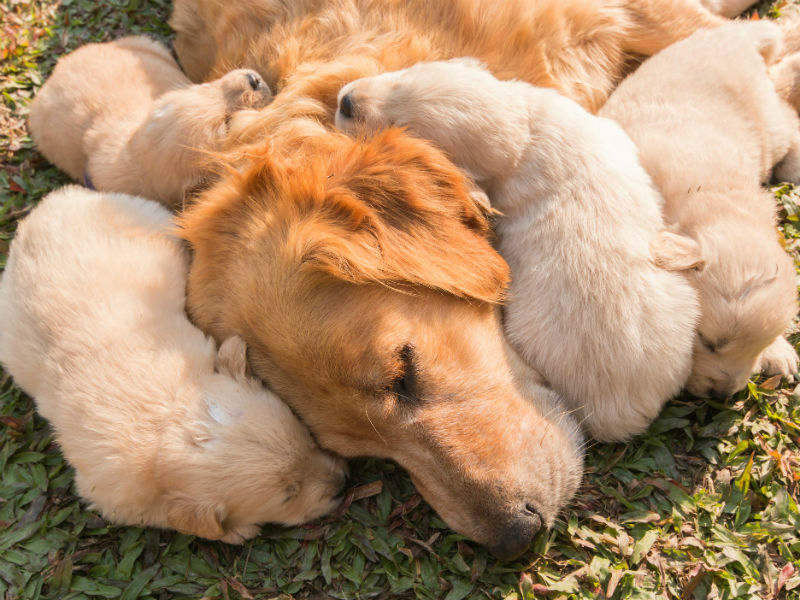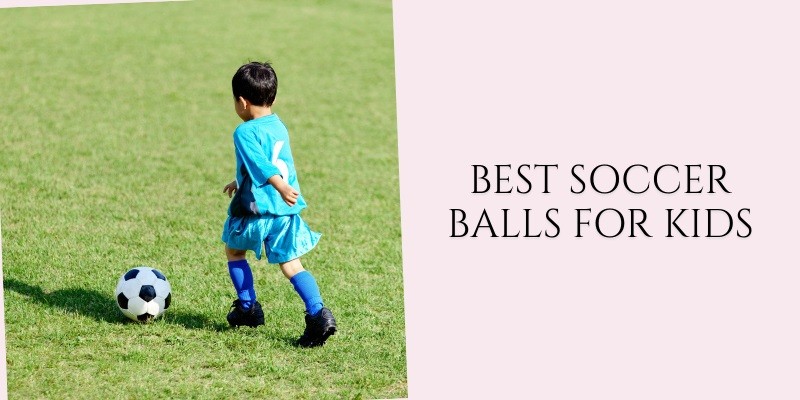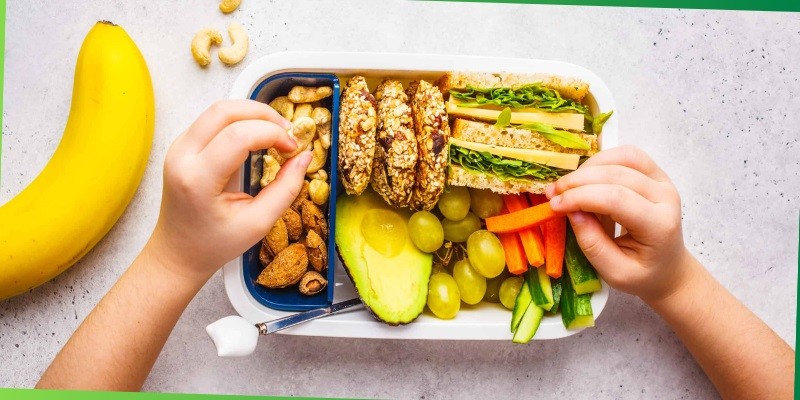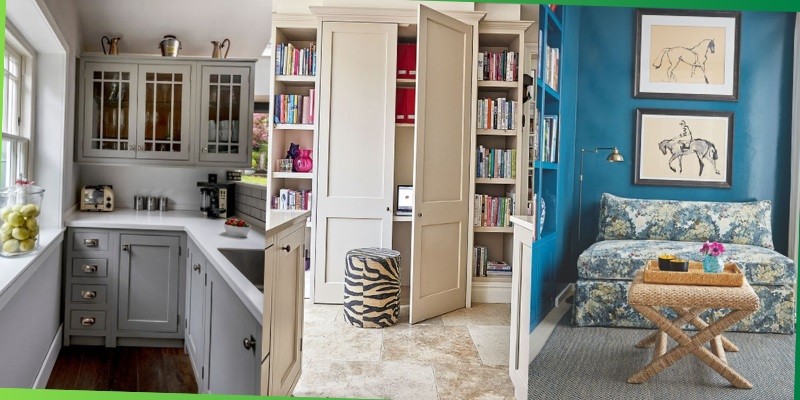Last Updated on January 15, 2025
Yes, it is generally not advisable to separate puppies from their mother at night due to their need for maternal care and bonding. Separating puppies from their mother is a decision that should be made with careful consideration for their well-being.
Puppies, like human babies, rely on their mother for warmth, nourishment, and emotional support. The first few weeks are crucial for their development, as this is when they learn important socialization skills and get the necessary nutrients from their mother’s milk.
While it may be tempting to separate puppies at night to minimize disruption or noise, it is important to prioritize their needs above convenience. This article will explore the reasons why separating puppies from their mother at night can negatively impact their health and development and provide alternative strategies for ensuring a peaceful night’s sleep for everyone involved.
The Importance Of Mother-puppy Bonding
The crucial role of mother-puppy bonding
Mother-puppy bonding is an essential aspect of a dog’s early development and plays a vital role in their emotional well-being. Dogs are pack animals, and their earliest experiences with their mother and littermates are crucial for their socialization skills and overall development. These early interactions form the foundation for their understanding of appropriate behavior, communication, and social hierarchies.
During the first few weeks of a puppy’s life, the mother provides not only nourishment but also warmth, comfort, and emotional reassurance. This bonding period is critical for the puppies’ mental and physical growth and establishes a strong foundation for their future relationships and well-being.
The Crucial Role Of Mother-puppy Bonding
Formation of Social Skills:
The mother teaches her puppies important social skills, such as communication through body language, bite inhibition, and discipline. By observing and interacting with their mother, the puppies learn how to understand and respond to various canine cues, which will serve them well in their interactions with other dogs later in life.
How Separation Can Affect The Emotional Well-being Of Puppies
Emotional Security:
Being separated from their mother before they are developmentally ready can have adverse effects on a puppy’s emotional well-being. It is during this period that they learn to feel secure and confident, developing resilience that will help them cope with stressors throughout their lives. Separation during this crucial bonding stage can lead to anxiety, fearfulness, and even behavioral issues in the future.
Development of Independence:
Through the mother-puppy bond, puppies gradually develop a sense of independence and learn to explore their environment at their own pace. This gradual progression builds their self-confidence and boosts their problem-solving skills. Premature separation can hinder this natural progression, potentially leading to shyness, insecurity, or difficulty adjusting to new situations.
Establishing Trust and Attachment:
The bond formed between a mother and her puppies is built on trust and attachment. This bond provides a sense of security and comfort for the puppies, enabling them to grow into well-adjusted dogs. Premature separation can disrupt this process, making it more challenging for puppies to form trusting relationships with humans or other animals in the future.
Understanding the importance of mother-puppy bonding is crucial when considering when and how to separate puppies from their mother. It is essential to provide the puppies with ample time to develop their social and emotional skills before considering any separation. When the time comes, a gradual and supervised separation process should be implemented to minimize the potential negative impact on the puppies’ emotional well-being.
Mother-puppy bonding is a critical phase in a puppy’s development, laying the groundwork for their socialization, emotional well-being, and future relationships. Separation from the mother before the appropriate time can have lasting effects on a puppy’s emotional well-being, hindering their ability to cope with stressors and form trusting relationships. Understanding the importance of mother-puppy bonding allows us to make informed decisions about the separation process, ensuring the puppies’ overall well-being and development.
Signs That Puppies Are Ready For Nighttime Separation
When it comes to separating puppies from their mother at night, it is important to consider the signs that indicate they are ready for this transition. While it can be challenging to determine the appropriate time, recognizing these signs will help ensure a smoother process for both the puppies and their owners.
Recognizing Signs Of Independence In Puppies
Puppies, like human babies, go through periods of development where they start to show signs of independence. This is an important milestone as it indicates their readiness for nighttime separation from their mother.
Here are some key signs that your puppies may be ready for this next step:
- Increased curiosity: Puppies that are ready to be separated from their mother at night will start showing increased curiosity about their surroundings. They will be more interested in exploring their sleeping area and may even start venturing out on their own.
- Self-soothing behavior: Puppies that are ready to be separated will begin to exhibit self-soothing behaviors, such as sucking on their paws or cuddling up with a soft toy. This shows that they are starting to develop coping mechanisms that can help them feel secure without their mother’s constant presence.
- Increased playfulness: As puppies grow older, they naturally become more playful. If you notice that your puppies are engaging in more independent play without constantly seeking their mother’s attention, it may be a sign that they are ready to spend nights without her.
- Improved bladder control: One of the key indicators that puppies are ready for nighttime separation is their ability to control their bladder for longer periods. If they can sleep through the night without needing to go potty or have accidents, it shows they have developed enough control to handle sleeping independently.
Identifying Appropriate Age For Separation
While recognizing signs of independence is important, it is equally essential to consider the appropriate age for separating puppies from their mother at night. Separating them too early can cause distress and hinder their social and emotional development.
The ideal age for separation will depend on various factors, including the breed and individual puppy’s development. As a general guideline, most puppies are ready for nighttime separation between 8 and 12 weeks of age.
However, always consult with a veterinarian or experienced breeder for personalized advice tailored to your specific puppy’s needs.
By keeping an eye out for signs of independence and considering the appropriate age for separation, you can ensure that the process of separating puppies from their mother at night is a smooth and positive experience for everyone involved.
Gradually Introducing Nighttime Separation
The Benefits Of A Gradual Separation Process
In order to ensure the well-being and emotional development of puppies, it is important to approach the process of separating them from their mother at night gradually. Gradual separation offers several benefits for both the puppies and their mother, helping to make the transition smoother and less stressful for everyone involved. By taking the time to introduce nighttime separation gradually, you can help puppies develop independence, establish their own sleeping routines, and build confidence in their ability to sleep alone. Additionally, it allows the mother dog to adjust gradually to the reduced demand for nursing and caregiving, preventing any potential stress or discomfort.
Creating A Comfortable Sleeping Area For The Puppies
When separating puppies from their mother at night, it is essential to provide them with a comfortable and secure sleeping area. This ensures that the puppies feel safe and relaxed, promoting healthy sleep patterns and reducing anxiety. Consider the following tips when creating a sleeping area:
- Choose a quiet location: Select a spot that is free from excessive noise or distractions, allowing the puppies to sleep peacefully throughout the night.
- Use soft bedding: Provide the puppies with soft and cozy bedding to enhance their comfort. You can use blankets, towels, or specially designed puppy beds.
- Ensure proper temperature: Maintain a comfortable temperature in the sleeping area to keep the puppies warm but not overheated. Use a thermometer to monitor the temperature.
- Encourage familiarity: Introduce items with familiar scents, such as a blanket or toy from the mother, to help the puppies feel more secure in their new sleeping environment.
By creating a comfortable and inviting sleeping area, you can help ease the transition for the puppies and promote a positive experience during nighttime separation.
Preparing Puppies For Nighttime Separation
Establishing A Routine Before Separation
Establishing a routine before separating puppies from their mother at night is essential for their overall well-being and successful adjustment. By creating a consistent schedule, you can help promote a sense of security and stability for the puppies during this potentially stressful transition.
Here are some key steps to consider when establishing a routine:
- Gradually introduce separation: Start by gradually increasing the time spent away from the mother during the day. This way, the puppies can get used to being away from her for short periods and gradually build up their independence.
- Set a consistent bedtime: Determine a specific time when the puppies should go to sleep. Ideally, this should be around the same time every night to establish a routine and signal to the puppies that it’s time to rest.
- Create a soothing environment: Set up a quiet, comfortable, and designated sleeping area for the puppies. Consider using a crate or a warm, cozy bed where they can feel safe and secure.
- Provide comforting items: Place familiar scents or soft blankets in their sleeping area to provide a sense of familiarity and comfort. This can help ease their anxiety and make the separation process easier.
Providing A Safe And Secure Environment For The Puppies
Creating a safe and secure environment for puppies is crucial to ensure their well-being and help them adjust to being separated from their mother at night. By taking necessary precautions, you can provide a space where the puppies feel protected and content.
Consider the following tips for a safe and secure environment:
- Puppy-proof the area: Remove any potential hazards or toxic substances that the puppies could access. Ensure that electrical cords are safely tucked away and that the room is free from small objects they could ingest.
- Provide appropriate bedding: Choose bedding that is safe and comfortable for the puppies. Avoid materials that could pose a choking hazard or increase the risk of suffocation.
- Monitor temperature and humidity: Maintain an optimal temperature and humidity level in the room to keep the puppies comfortable. A thermometer and hygrometer can help you ensure the environment is suitable for their needs.
- Ensure proper ventilation: Good airflow is essential to prevent stuffiness and maintain fresh air for the puppies. Ensure that the room has adequate ventilation, but avoid direct drafts that could make them uncomfortable.
- Limit contact with other pets: If you have other pets in the house, it’s important to gradually introduce them to the puppies and monitor their interactions. Always prioritize the safety and well-being of the puppies.
Implementing Nighttime Separation
When it comes to separating puppies from their mother at night, it is a decision that should be handled with care. While it is natural for puppies to crave their mother’s presence and comfort, it is also important to teach them independence and gradually introduce them to sleeping alone. Implementing nighttime separation can be a gradual process that involves keeping comforting items nearby for the puppies and using positive reinforcement techniques during separation. By following these steps, you can ensure a smoother transition for both the puppies and their mother.
Keeping Comforting Items Nearby For The Puppies
If you have decided to separate the puppies from their mother at night, it is essential to make them feel as comfortable as possible. One way to achieve this is by keeping comforting items nearby. Place a soft blanket or a piece of clothing with the mother’s scent in their sleeping area. The familiar scent will help ease their anxieties and provide a sense of security.
Additionally, you can introduce a plush toy or a warm water bottle wrapped in a towel. Puppies often find comfort in snuggling against something soft and warm, mimicking the warmth and closeness they would have experienced with their mother and siblings.
By providing these comforting items, you can create a soothing environment that will help the puppies adjust to sleeping without their mother’s presence.
Using Positive Reinforcement Techniques During Separation
Positive reinforcement is a powerful tool for teaching puppies to adapt to new situations, including nighttime separation. During the separation process, it is essential to reward the puppies whenever they exhibit calm and relaxed behavior.
One effective technique is to use treats or praise to reward the puppies for settling down in their sleeping area. For example, when they choose to lie down or explore their surroundings instead of crying or seeking their mother, provide a small treat or offer verbal praise by saying, “Good puppy!” in an upbeat and encouraging tone.
Consistency is crucial when implementing positive reinforcement. Ensure that every time the puppies display desirable behavior during nighttime separation, they are rewarded. This will reinforce the idea that being independent and calm during sleep time is a positive experience.
Please note that the response provided above is in HTML format suitable for WordPress.
Monitoring The Puppies’ Transition To Nighttime Separation
Separating puppies from their mother at night is a necessary step in their development, but it can be a challenging process for both the puppies and the new owners. Monitoring their transition to nighttime separation is crucial to ensure the well-being and comfort of the puppies. By observing their reactions and behaviors, and adjusting the separation routine accordingly, you can create a smooth transition for the puppies. Let’s delve into some key areas to focus on during this crucial period of adjustment.
Observing The Puppies’ Reactions And Behaviors
When it comes to monitoring the puppies’ transition to nighttime separation, paying close attention to their reactions and behaviors is essential. Notice how they respond to being separated from their mother at night. Do they exhibit signs of distress, such as incessant whining or pacing? Alternatively, do they remain calm and settle into their new sleeping arrangements? Observing their reactions will give you valuable insights into how they are coping with the separation process.
Some typical behaviors to watch out for during this transition include:
- Restlessness
- Excessive barking or crying
- Pacing or circling
- Refusing to eat or drink
- Searching for their mother
Keep in mind that each puppy is different and may react to separation in their own unique way. By closely observing their behaviors, you can identify any potential issues and make necessary adjustments to the separation routine, ensuring their comfort and well-being.
Adjusting The Separation Routine Based On The Puppies’ Needs
Flexibility is key when it comes to transitioning puppies to nighttime separation. Just like human babies, puppies have different needs and personalities. Some puppies may adapt quickly to being separated from their mother, while others may require more time and support.
Here are some adjustments you can consider:
| Adjustment | Purpose |
|---|---|
| Gradual separation | By gradually increasing the time spent away from their mother, puppies can adjust to the separation more easily. |
| Comfort items | Providing familiar items, such as a blanket or toy with their mother’s scent, can help provide a sense of security and ease the transition. |
| Creating a calm environment | Ensuring a quiet, dimly lit space can help create a soothing atmosphere for the puppies, promoting a more relaxed transition. |
| Positive reinforcement | Using treats or praise can help reinforce positive associations with the separation, making it a more positive experience for the puppies. |
Ultimately, each adjustment should be based on the specific needs and behaviors of the puppies, allowing for a personalized approach to their nighttime separation. By making these adjustments, you can help facilitate a smoother transition, reducing stress and anxiety for both the puppies and yourself.
Considerations For Special Circumstances
When it comes to separating puppies from their mother at night, there are a few special circumstances that need to be considered. These circumstances include separating puppies with health issues and the challenges of fostering orphaned puppies. In this section, we will explore these situations in more detail.
Separating Puppies With Health Issues
If you have a litter of puppies and one or more of them have health issues that require special attention, you may need to separate them from their mother at night. In such cases, it is important to create a comfortable and safe environment for these puppies. Here are some considerations:
- Medical supervision: It is crucial to consult a veterinarian to understand the specific needs of the puppies with health issues. The vet can guide you in providing the necessary care, medications, and treatments.
- Isolation: Sometimes, separating the sick puppies from their littermates can help prevent the spread of any contagious diseases. Ensure that the isolated area is warm, quiet, and well-ventilated.
- Special diet: Puppies with health issues might require a specific diet or feeding schedule. Discuss this with your vet to ensure they receive the necessary nutrients to aid their recovery.
- Monitoring: Regularly monitor the sick puppies for any changes in their condition. Note any symptoms, behaviors, or responses to treatment and report them to your vet.
Fostering Orphaned Puppies And The Challenges They May Face
If you find yourself in a situation where you are fostering orphaned puppies, their separation from their mother becomes inevitable. Here are some important considerations for successfully caring for these little ones:
- Imitating maternal care: Without a mother to provide warmth, comfort, and nourishment, you will need to step in and provide these essential elements. Use a warm blanket or heating pad to create a cozy environment, and consult a veterinarian or experienced breeder for guidance on suitable milk replacers.
- Feeding frequency: Orphaned puppies typically need to be fed every two to three hours, including during the night. This requires dedication and a consistent schedule to ensure they receive the nutrition they need to thrive.
- Stimulation: Just like a mother dog would do, orphaned puppies need help with elimination. Gently stimulate their genitals with a warm, damp cloth after each feeding to encourage urination and defecation.
- Socialization: Orphaned puppies may miss out on crucial socialization that they would have received from their mother and littermates. Provide plenty of human interaction and introduce them to new experiences gradually to help them develop into well-adjusted dogs.

Credit: www.akc.org
Consulting With Experts For Additional Guidance
Consulting with experts can provide invaluable guidance when it comes to separating puppies from their mother at night. Making the decision to separate puppies from their mother is not an easy one, and it’s important to consider the well-being of both the puppies and the mother during this time. Seeking advice from veterinarians or breeders and exploring professional training options for separation anxiety can help ensure a smooth transition for everyone involved.
Seeking Advice From Veterinarians Or Breeders
Consulting with veterinarians or experienced breeders is a crucial step in ensuring the well-being of the puppies and the mother. These professionals have a deep understanding of canine behavior and can provide personalized recommendations based on their expertise. Veterinarians can assess the health of the puppies and the mother to determine if it’s appropriate to separate them at night. They can also offer advice on creating a safe and comfortable environment for the puppies, including proper nutrition, vaccination schedules, and socialization.
Breeders, on the other hand, can share their firsthand knowledge and experience in successfully separating puppies from their mother. They can provide insights into the best age and gradual separation techniques that promote healthy development and reduce separation anxiety. Their guidance can be particularly valuable for first-time puppy owners who may feel unsure about the process.
Exploring Professional Training Options For Separation Anxiety
Separation anxiety is a common concern when it comes to separating puppies from their mother, as the puppies may become distressed when away from their familiar environment and companions. In severe cases, separation anxiety can lead to behavioral issues and emotional distress for the puppies.
By exploring professional training options, such as engaging a certified dog trainer specialized in separation anxiety, owners can equip themselves with effective strategies to prevent and manage separation anxiety. These trainers have extensive knowledge in behavior modification techniques tailored to the specific needs of the puppies. They can guide owners in creating a structured routine, introducing positive reinforcement, and gradually increasing separation time to help puppies adjust to being away from their mother.
Professional training can also provide guidance on implementing interactive and stimulating activities that alleviate anxiety and keep puppies occupied during the night. These include puzzle toys, interactive feeding devices, and comforting items that mimic the presence of their mother or littermates.
Frequently Asked Questions Of Can You Separate Puppies From Mother At Night?
Can You Separate Puppies From Their Mother At Night?
Yes, you can separate puppies from their mother at night, but it’s best to wait until they are at least 8 weeks old to ensure they are properly weaned and can handle being on their own.
Is It Safe To Separate Puppies From Their Mother At Night?
Separating puppies from their mother at night can be safe as long as they are old enough, have been weaned properly, and have a safe and warm environment to sleep in.
At What Age Should I Separate Puppies From Their Mother At Night?
It’s recommended to separate puppies from their mother at night around 8 weeks old to ensure they are ready for the transition and can handle being on their own.
What Can Happen If I Separate Puppies From Their Mother Too Early?
Separating puppies from their mother too early can have negative impacts on their development, socialization, and overall health. It’s best to wait until they are at least 8 weeks old.
How Can I Make The Separation Easier For The Puppies At Night?
To make the separation easier for the puppies at night, provide them with a comfortable sleeping area, a warm blanket or bed, and a familiar toy or blanket that has the mother’s scent on it.
Can I Separate A Single Puppy From Its Mother At Night?
Separating a single puppy from its mother at night is possible, but it’s important to ensure the puppy has plenty of love, attention, and a safe environment to sleep in to avoid feelings of loneliness or anxiety.
Conclusion
Separating puppies from their mother at night can be a challenging decision. While it can be necessary in certain situations, it’s crucial to consider their age, health, and overall well-being. Gradual separation accompanied by proper care and guidance can help alleviate the stress of separation for both the puppies and their mother.
Consulting a veterinarian is highly recommended to ensure the best outcome for all parties involved.







